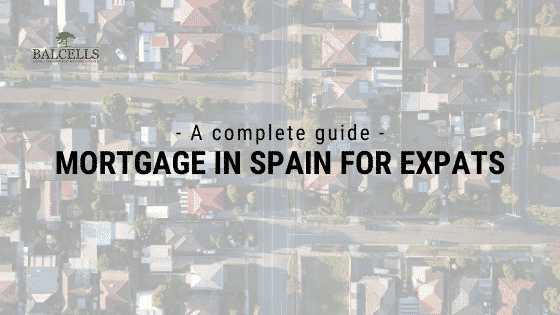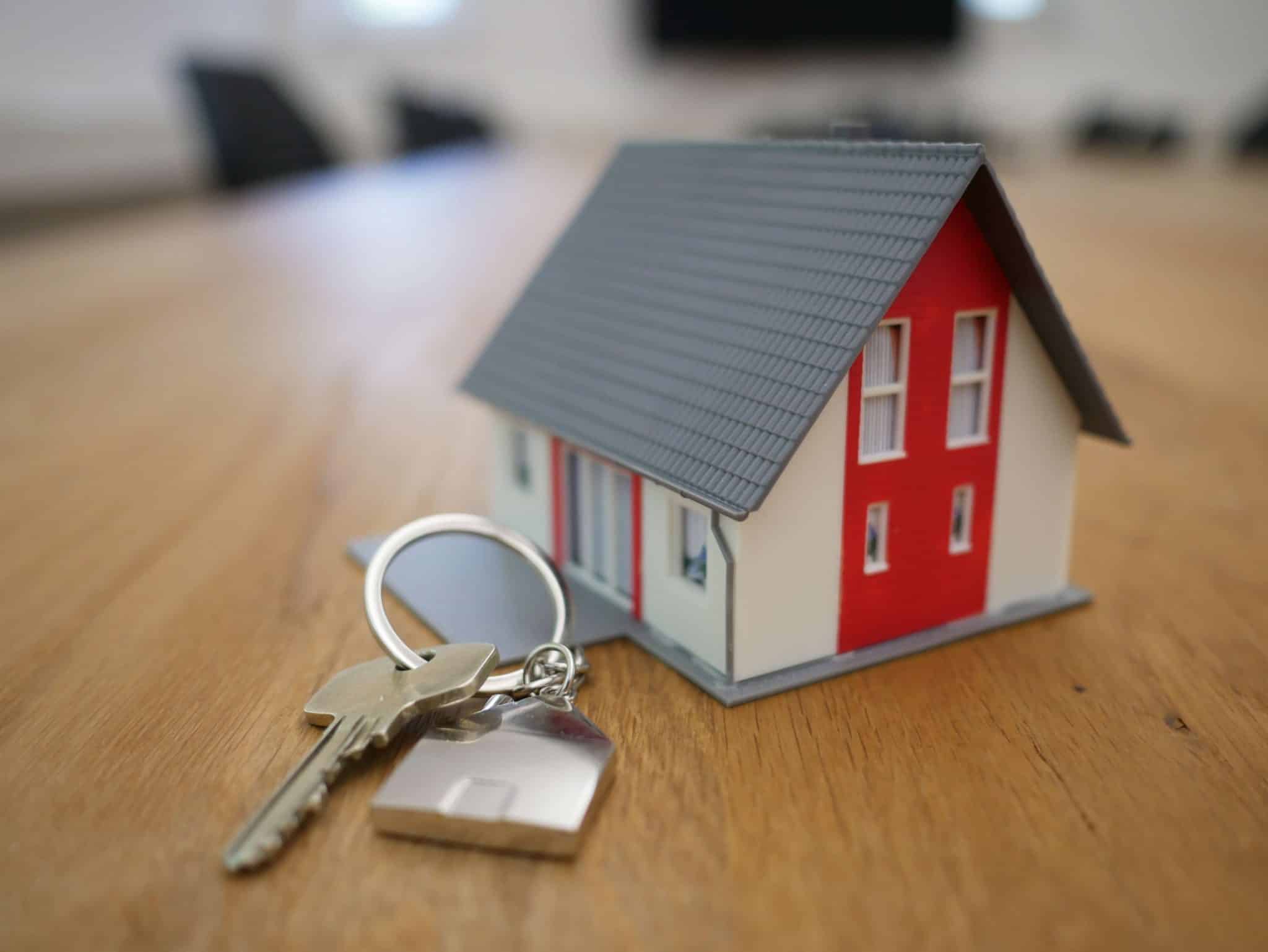You have now decided you would like to start living in Spain. You even decided which will be your new city. Now it’s time to buy your new property or house. And that involves an important implication: you need to get the money to pay for the property. And we are talking about a big amount, so getting financing is essential. In that sense, Spain offers really great opportunities to get a mortgage as an expat. And in this article, we are going to talk about everything related to it.
What are you going to learn in this complete guide about mortgages in the Spanish territory?
Why is Spain one of the best places to get a mortgage and financing to buy a property?
Maybe you are not aware of it, but Spain may be one of the best countries to buy a property. And that is because getting a mortgage has many advantages here. One of them being the low costs associated with this transaction. But also the flexibility it now offers.
Which are its main advantages?
Avoid paying setup charges
After the new mortgage law that came into play in June 2019, consumers are in a much better position now.
From now on banks are the ones in charge of paying the setup costs related to the mortgage, like the famous tax AJD (“actos jurídicos documentados).
In the past, the buyer was the one in charge of paying the registration fee, stamp duty, the notary fees… All of that has been eliminated with this new law. The bank assumes that cost.
This implies an important reduction of the costs you are paying, making your mortgage even cheaper. The only 2 things you will have to pay now are:
- The valuation fee that the bank needs to realize in order to assess the real value of the property. That is a fixed fee of 300-500€.
- Arrangement fee, which varies from bank to bank, but usually is 1-1.5%.
There are some banks that are even assuming these two costs, making it even a better deal for you (but not all of them will).
This, for sure, makes Spain one of the best places to get financing for a property.
Low interest rates
But wait for a second. This new law seems too good.
If banks will lose this setup income they were previously receiving, they must be getting that money from somewhere else. They must be charging the buyer from another source. And that has to be increasing the mortgage interest rate. There’s no other way.
But that couldn’t be further from the truth.
Interest rates in Spain are really low. In fact, they are at the lowest they have been during the past 30 years.
We are talking about one of the countries in the whole Europe with the lowest rates. Which makes it pretty good for you in order to get financing.
So, if you are wondering which is the main downside of this new policy, you can find it on the loan-to-value. Banks are now much more strict when conceding a mortgage, and they will only finance a 60 to 70% of the property due to that. We will talk more about that in a minute.
Repayments with your countries currency
Are you from a non-European country? Good news for you.
You can now choose to realize the mortgage repayments with euros or with the currency of your home country. Let’s say, for example, that you are from the UK. You can choose to pay the loan with pounds or with euros. And that is something you will decide when signing the mortgage contract.
The exchange rate will be fixed throughout the whole life of the mortgage repayment.
All the before mentioned factors should make it obvious for you to avoid using a lender from your country of origin and ask for a mortgage in Spain.
And not only due to the lowest total cost and the money you could save (as we have seen), but also due to the reduction of bureaucratic complexity.
Which are the types of mortgages in Spain?
In Spain there are three main types of mortgages: variable (adjusted with the Euribor), fixed, and mixed (a combination of both). Buy-to-let and interest-only mortgages are not available in the Spanish territory.
Even though the financial products are exactly the same for both residents and non-residents, some differences may arise. And those differences stem from the basic conditions of the loan.
Differences between residents and non-residents
As we said, no matter how many days per year you stay in the country (the factor that defines if you are a resident or not), the mortgages you can get are exactly the same.
However, you will enjoy more favorable conditions if you are a Spanish resident.
So which are the main differences between both groups?
- First of all, non-residents will pay more. Why? Because the interest rate will be higher for them.
- Furthermore, they will get less financing for the property, usually 60% of the total amount to be paid. In that sense, residents in Spain will enjoy the highest loan-to-value mortgages (70-80%), with lower interest rates.
- Another important difference comes with repayment periods: being lower for non-residents. It’s fairly complicated to find loans with greater than 20 year repayment periods, when residents can get it up to 40 years.
- In order to reduce risk even further, banks will usually concede a fixed type mortgage to non-residents. But that is not something true in all the situations.
- Required documents will also be something to consider. Why? Because non-residents are asked an additional document: a credit rating from their country of origin.
- Taxes will vary accordingly too. The ones residing in Spain for less than 183 days per year will pay different taxes, like the 3% they face when selling their property.
- Finally, some mortgages for non-residents can be less flexible and a bit outdated. So the importance of comparing is much more noticeable here.
General mortgage conditions for expats

In this section, we will analyze the basic information that you need to know when requesting a mortgage as a foreigner. We are talking about the different conditions you can expect to get after receiving your offer.
This is something really important to know, as it will help you have clear expectations of the money you will need and what it will all cost you.
How much can you borrow for your Spanish mortgage?
As a general rule, banks concede a maximum of 60 to 70% of the property value to foreigners. Nevertheless, if you can demonstrate that you have been living and paying taxes in Spain (at least for 2 years), you can reach to get an 80% financed. There is a special type of situation in which getting 100% is possible: when you are buying a repossessed property from the bank.
Just to let you know, the percentage of the property’s value that you get as financing is called loan-to-value. And, after the application of the new law that we talked about before, it has dropped significantly.
What interest rate can I get?
The answer will depend on your profile as a buyer (how solvent you look in the bank’s eyes).
The Spanish system is much simpler than the mortgage system in the UK, for example.
And here we basically find fixed or variable mortgages. Fixed loans will enjoy a 2-4% interest rate, and variable ones depend on the Euribor and on your buyer’s profile (it’s a compound rate).
How much should you invest for your property (own money)?
This is a crucial step. Calculating how much exactly will you need to pay, beforehand, to buy the property. How much money you need to have in the bank today to be able to purchase, not taking into consideration the mortgage to be received. And, in order to know that amount, you should bear in mind:
- The cost of the property represents a 100% for our calculation.
- You also need to account for the additional costs when buying a property. That will vary from region to region, but in order to simplify, we will use a standard 15%. This is the percentage you can expect in Barcelona or Valencia.
- As we have mentioned, the bank will give you 70% of the value of the property. Important note: when deciding how much to finance, the bank will give that 70% of the value that is lowest between the value of the property (assessed by their professionals) and the market value.
If you do the math, you need to have a 45-50% of the total amount in your account today (100% + 15% – 70%). That is what you will have to pay at the beginning (without any loan).
What term can you expect for a mortgage in Spain?
The terms are usually from 5 to 40 years maximum. If you are a non-resident you will be moving towards the lower end of this range (5-20), and residents will usually get 20-30 years term to repay the mortgage.
Furthermore, there may be additional restrictions. This will vary from bank to bank, but they will concede loans to be fully repaid before you reach 75 years old. More than that will be really rare.
How to get a mortgage in Spain as a foreigner
Let’s now dive into each of the 6 steps you will need to follow in order to get a mortgage in Spain as an expat:
1. Prepare and submit the required documents
You will need to submit a list of documents that identify yourself, help the bank know your income and debts, and taxes you pay.
2. Receive a mortgage pre-offer
After the bank analyzes the documentation and your particular situation, they will make you an offer. Usually, that will simply be their first offer, not the best one you can get.
3. Open a bank account
Now that you know about how much money you will need to have in order to purchase the property, you need to open a bank account in Spain. That is where the repayment money will be withdrawn every single month.
4. Compare and accept the offer
You will have time to compare that first offer with other banks, trying to get the best possible deal. Our advice is to bring the initial offer to other lenders so they can match it. Then, bring that counteroffer to the initial bank to get the best possible deal.
5. Agree with the offer
After knowing all your options its time to decide. Be cautious and choose the best possible alternative. Bear in mind that you will have to be paying that loan back for probably over 20 years. So taking your time to accept is crucial.
6. Mortgage completion
Finally, signing the mortgage. You will need to go to the notary in order to finalize the process. There’s also the possibility to facilitate power of attorney to a lawyer so you don’t need to be present that day.
Extra step
Before getting the mortgage, banks usually need you to contract insurance against fire and other disasters for the property. Even though life insurance won’t be required here, property insurance will.
How long does it take to get a Spanish mortgage?
From start to finish, it takes from 6 to 8 weeks to get the mortgage. Even though the process can be completed in just 4 weeks sometimes, that is something rather unusual.
Furthermore, according to the 6 steps we have just seen, it can take even longer if you take more time to prepare the documents (step 1) or take longer comparing between banks/mortgage offers (step 4).
Required documents to get a mortgage as an expat in the Spanish territory
The documents you need to submit are helpful to identify yourself and show proof of your income, assets, and debts. So the required documents are:
- Copy of your passport
- NIE number, the basic identification number you will need to buy a property in Spain and to realize any other legal procedure. You can learn how to get an NIE number here.
- Marriage certificate or prenuptial agreement (if applicable)
- Proof of employment or income. That is achieved through the last 3 paychecks with the contract of employment if you work for a company. If you are a self-employed individual, your income tax declaration for the previous years.
- Latest income tax return.
- Purchasing agreement with the seller.
- Proof that demonstrates that all the property taxes are paid to date.
- Complete information about other loans you may have.
- Proof of your current assets and debts.
- A copy of your existing property deeds (in Spain and in any other country)
Bear in mind that all these documents must be in Spanish, so they must be legally translated or apostilled. At Balcells Group we can help you with that so they can have legal validity after the translation.
How to get the best mortgage rates as a foreigner in Spain
Which is the ideal strategy to get the best possible rates? We will now give you 6 pieces of advice that will help you get the best rates as a foreigner:
- Become the ideal client for the bank. And that is achieved by demonstrating solvency. Banks decide whether to concede a mortgage or not and under which conditions according to your paying profile. If you demonstrate you will be able to pay with no problem, you can get a better rate. In that sense, create stable sources of income. The lenders calculate a third of your salary and ad the repayment amount there. That total amount must represent less than 35% of your monthly income.
- Banks prefer that your source of income is based on monthly wages (safer) rather than on self-employed income or dividends. So try to adjust accordingly.
- If the mortgage that you request just represents 60% of the total value of the property, your chances of getting better rates are higher.
- It helps immensely to ask for the mortgage together with your partner.
- Start early. Don’t wait until the last moment of the purchasing process to think about the mortgage. And try to compare as much as possible, especially after you have received several offers (so you have something to compare with).
- Trust real estate lawyers to help you find the best alternatives. In our case, Balcells Group lawyers advise you from start to finish when buying a property in Spain. So it is much better to have a person to whom you can trust managing the whole process (including the mortgage part), so they can guide you on where to look and which are really good conditions according to your case.
Spanish mortgage calculator
Knowing the exact mortgage conditions you will get beforehand is complicated.
Fixed mortgages usually offer 2 to 4% interest rates.
Nevertheless, most of them are variable loans. This means that they are composed of the moving percentage dictated by the Euribor, and the premium that the bank gets.
At the beginning of 2019, the Euribor was below 0, exactly at -0.37%. On the other side, the bank premium depends immensely on the specific bank and the buyer’s profile.
But, if you would like to get an exact idea, we can help you out. We will be your online mortgage calculator. This can be the perfect guidance when comparing so you get the best deal possible, so make the extra step and contact us!
Book a consultation with one of our lawyers and solve all your doubts:

At Balcells Group we have been foreigners effortlessly moving to Spain for over 11 years. We help expats from all around the world with their immigration, business, tax and legal needs; ensuring a legally safe and enjoyable transition to the Spanish territory. Our multilingual team understands the importance of adapting to the cultural and legal specificities of our international clients. We offer a comprehensive service that combines the expertise of several generations of lawyers with the innovation needed to address today’s legal challenges, always striving to simplify processes and ensure reliable, effective results.





Me gustaria comprar en alicante
¡Hola Cesar!
Mándanos un mail a [email protected] y nuestro equipo de abogados te asesorará durante todo el proceso.
Un saludo.